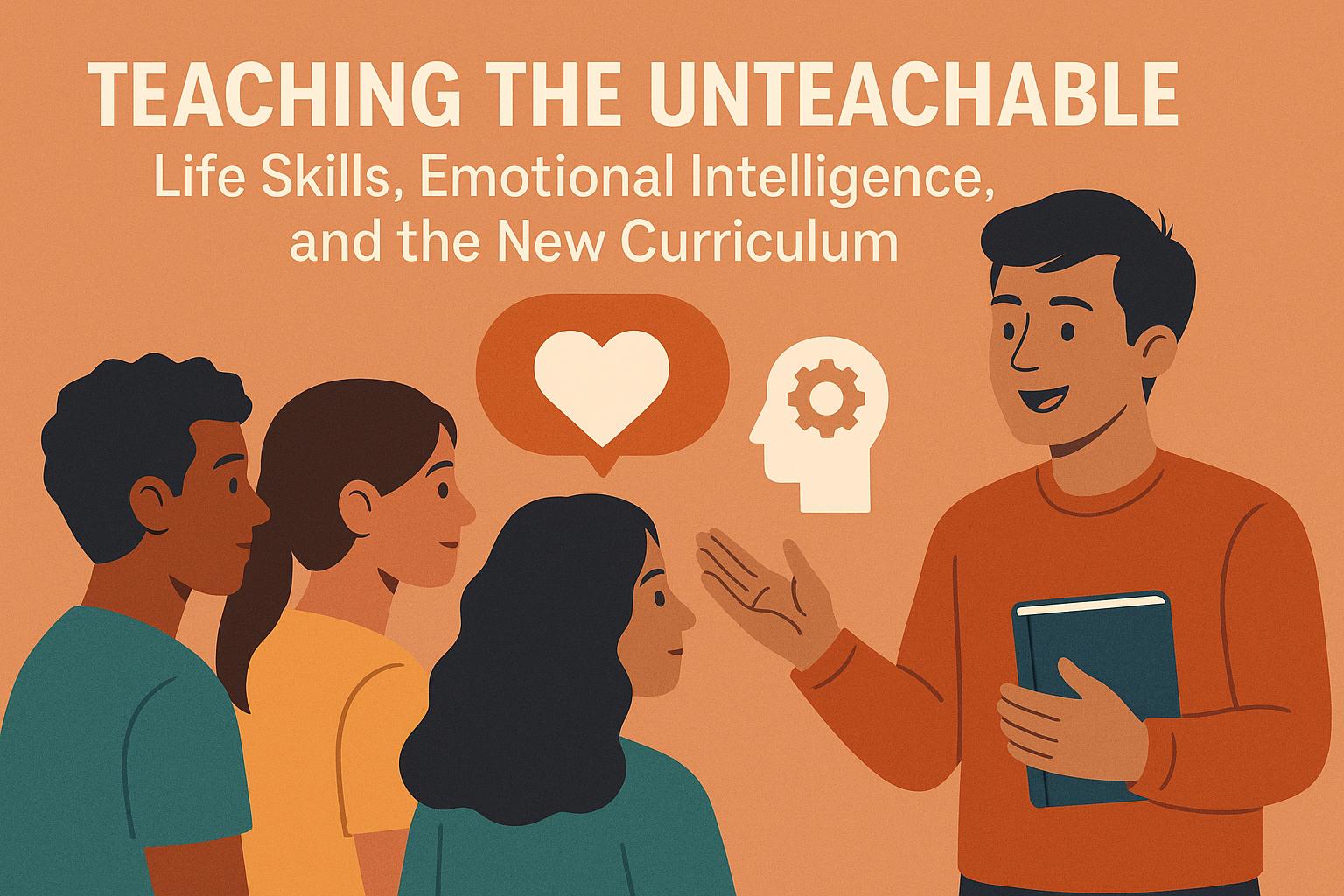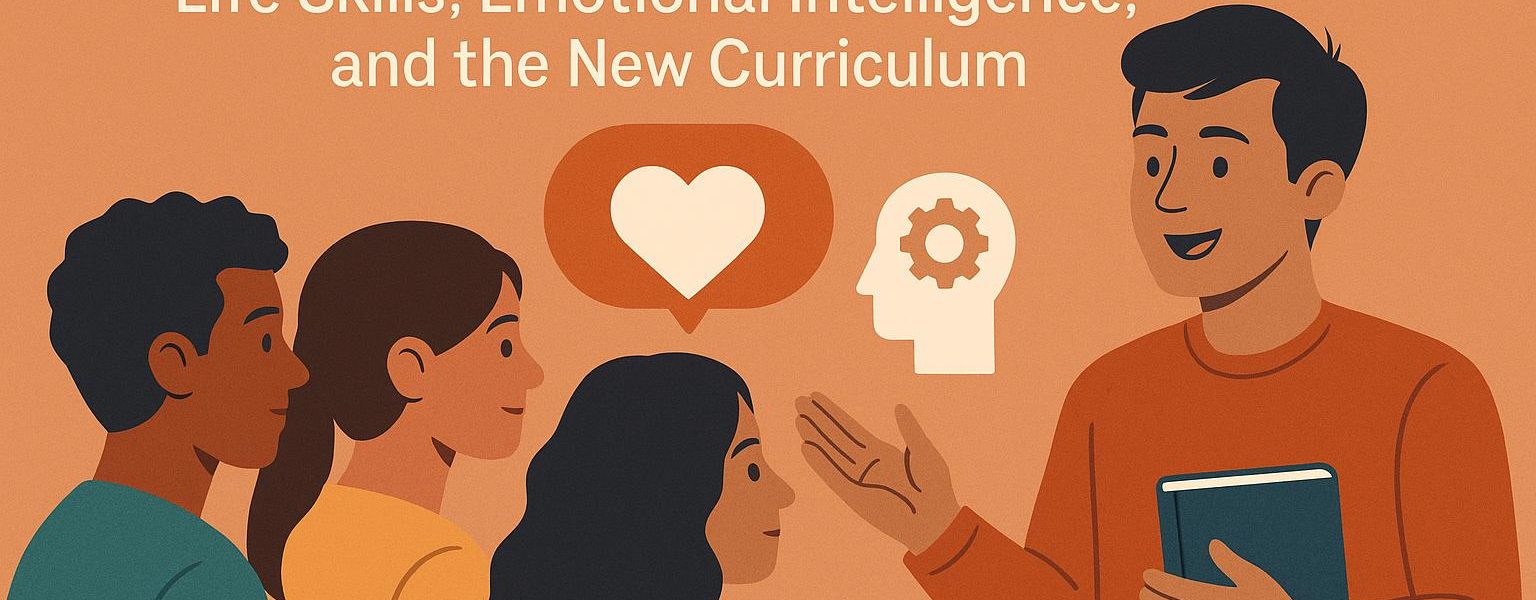For decades, education has focused heavily on academic subjects: math, science, literature, history. These remain important, but in 2025 the world is realizing that success in life requires more than intellectual knowledge. It requires life skills and emotional intelligence — abilities that help us navigate relationships, manage stress, and make responsible choices. Once considered “unteachable,” these skills are now becoming central to the future of education.

Why Life Skills Matter
We live in an era of rapid change and uncertainty. Knowledge alone is not enough; adaptability, resilience, and communication skills determine how effectively people thrive. Employers seek graduates who can collaborate, problem-solve, and handle setbacks. Families value children who can manage emotions, build empathy, and practice self-discipline. These are not luxuries; they are essentials for survival and success in the modern world.
What Emotional Intelligence Brings
Emotional intelligence (EQ) includes self-awareness, self-regulation, motivation, empathy, and social skills. Studies consistently show that people with high EQ are more effective leaders, healthier in relationships, and more resilient under pressure. Unlike IQ, which levels off, EQ can be developed throughout life — if schools and institutions prioritize it.
Integrating the Unteachable into Curriculum
Social-emotional learning (SEL): Programs that teach children to identify emotions, manage conflict, and build empathy are now part of classrooms worldwide.
Mindfulness and well-being: Schools are introducing meditation, stress management, and reflective practices to help students cope with pressure.
Financial literacy: Understanding money, budgeting, and responsible spending prepares learners for real-world independence.
Ethics and digital citizenship: With AI and technology shaping society, students must learn responsibility, online safety, and ethical decision-making.
Stories of Transformation
In Bhutan, schools that incorporated mindfulness and compassion practices reported improved academic performance and reduced anxiety. In Denmark, life skills programs focusing on empathy and teamwork resulted in stronger student well-being. In India, NGOs teaching financial literacy to rural youth empowered them to start small businesses and break cycles of poverty. These stories prove that life skills are not abstract theories — they produce real, measurable impact.
The Role of Teachers in Teaching the Unteachable
Teachers are evolving into mentors and facilitators. Instead of merely transmitting facts, they model empathy, resilience, and adaptability. Their role is not to have all the answers, but to create environments where students learn by doing, reflecting, and applying. AI can support by analyzing behavior and offering feedback, but human role models remain irreplaceable in shaping values.
Challenges in Teaching Life Skills
Unlike math problems, life skills don’t have one right answer. Measuring empathy or resilience is difficult. Some cultures resist non-academic education, seeing it as less valuable. There’s also the risk of superficial adoption — ticking boxes without true integration. For life skills to matter, they must be embedded deeply in school culture, not added as optional extras.
The Future of Curriculum
By 2035, we may see a curriculum where algebra and empathy sit side by side, where coding is taught alongside conflict resolution, and where exams measure creativity as much as accuracy. Education will expand from preparing students for careers to preparing them for life itself. The unteachable will become teachable — not through lectures but through lived experiences, guided practice, and supportive communities.
Why Academia Must Lead
Academia holds the power to legitimize what society values. If universities and schools prioritize life skills and EQ, policymakers will follow. If researchers study their impact, the world will recognize their necessity. By elevating life skills into mainstream education, academia can help shape not just smarter societies but healthier, kinder, and more resilient ones.
The classroom of the future will not only create professionals; it will create people who know how to live well, care deeply, and act responsibly. And that, perhaps, is the most important education of all.
Frequently Asked Questions
Q1: Can life skills really be taught in schools?
Yes. While not learned through memorization, life skills can be developed through practice, reflection, and supportive environments.
Q2: How can emotional intelligence be measured in students?
Through observations, peer feedback, and reflective assessments that capture growth in empathy, self-regulation, and collaboration.
#LifeSkills #EmotionalIntelligence #InspirationUnlimited




